During the first half of Night Moves, private detective Harry Moseby (Gene Hackman) shows a woman named Paula (Jennifer Warren) a sequence of chess moves from a famous match played in the 1920s. Harry and Paula have just met, and Paula could provide some answers to the case Harry’s working on, but he’s unsure whether he can trust her.
Harry shows her the chess sequence once more.
“It’s a beauty,” Paula says.
“Yeah,” Harry replies, “but he didn’t see it. He played something else and he lost. Must’ve regretted it every day of his life. I know I would have.”
On one level, I’ve just given away everything about Arthur Penn’s Night Moves, and then again, I’ve given away nothing. This brilliant neo-noir has been largely overlooked for 50 years, even among movie lovers, including some Gene Hackman fans. It’s a great film that demands a patient and careful eye, requiring more than one viewing to appreciate its wonders. A rewatch of a 50-year-old movie might be asking a lot, yet the rewards are tremendous.
In the opening scene, Harry arrives at his Los Angeles office, a slightly dingy room with two maps on the walls and several others rolled up and yellowing from disuse. It’s not the tidiest office you’ve ever seen in a movie, but it’s certainly not a disaster, yet it tells us something about the detective that could be crucial.
Harry accepts a missing person case from Arlene Iverson (Janet Ward), a middle-aged B-movie actress whose daughter Delly (Melanie Griffith, in her first major role) has run away. Arlene’s easy-going and too-familiar manner makes us think she’s more interested in keeping Harry around than sending him to find her promiscuous teenager. When Harry names his fee for taking the case, Arlene balks. “You can get cheaper,” Harry tells her. “But can I get better?” Arleen asks. Harry’s silence is telling.
Harry is a smart detective in some ways, but at times, he’s about as sharp as a bowl of Jello. He learns early on that his wife Ellen (Susan Clark) is cheating on him, then congratulates himself for confronting Ellen’s lover (Harris Yulin) the next day. Harry was a former pro football star, a good enough player to be recognized by most people. You’d think that type of recognition would bring him more clients.
Harry still has some physical toughness, which he releases on a sleazy mechanic named Quentin (James Woods), who has a thing for Delly and is likely holding out on Harry. While Quentin’s info seems good, Harry learns more about the girl from a movie stuntman named Marv (Anthony Costello), who either bedded Delly, her mom, or both. It’s not much of a spoiler to tell you that Harry eventually discovers Delly living in the Florida Keys with her stepfather, Tom Iverson (John Crawford), and his partner Paula. To no one’s surprise, the teen has no intention of returning to Los Angeles to be with her mother.
If Night Moves is about anything, it’s the ability (or inability) to observe and make the right connections. Whether we recognize it, we’re always comparing ourselves to movie detectives, asking, “Would I have picked up on what’s going on before he did?” or “I didn’t see that!” or “I knew from that character’s body language that he was lying.” Harry is trying to figure out the set-ups of these relationships. He can understand why Delly left her mom, but what about her relationship with Tom and Paula? What’s Tom and Paula’s relationship with each other? Is Paula interested in developing something with Harry? Her conversations vary from no-nonsense exchanges to cryptic late-night ramblings. Harry’s not exactly sure what she’s all about, but he probes for answers.
“You’re asking the wrong questions,” Paula responds. We realize she’s talking about the big picture; we also realize Harry doesn’t get it.
Like many film noir detectives who find themselves out of their element, Harry is lost in a labyrinthine case, trying to pursue one thread at a time in a tapestry that measures an enormous space. Part of his problem is based on his identity. He’s no longer the football star he was just a few years earlier and can’t maintain a meaningful relationship with his wife. Even if those things weren’t true, we can’t be sure he’d gain much advantage. You or I may be just as smart or smarter than Harry, but maybe we can’t put the pieces together, either. Some viewers have expressed such frustrations (which could be one reason why the film wasn’t more successful at the box office). Night Moves isn’t so vague that you can’t figure it out, but don’t be surprised if you’re wrong about a few (or many) things by the time the movie’s over.

Night Moves refuses to lead the viewer by the hand to arrive at a tidy denouement, but it’s not any vague exercise in open-ended existentialism so common in films from the ‘70s. The movie’s payoff comes not so much from learning “whodunit” but from the realization that the picture is a portrait of America’s identity, confusion, and lack of direction personified in the character of Harry Moseby, a man who is paid to find answers.
Hackman was the perfect choice for this role, even if he didn’t exactly endear himself to the cast and crew. (For more on this, as well as an excellent examination of the film, please check out Moseby Confidential: Arthur Penn’s Night Moves and the Rise of Neo-Noir (2019) by Matthew Asprey Gear.) Since Hackman’s death last month (link), people are rightfully discovering and rediscovering some of the actor’s finest performances, and this is one of them. Just watch how Hackman uses his eyes in this film. Just one look or a glance at something (or someone) conveys much of Harry’s character. Hackman knows Harry so well that when he changes the tone of his voice or speeds up or slows down his delivery, you pay attention because he’s revealing something important about his character. It’s a brilliant performance that should get more attention.
Roger Ebert wrote a positive review of Night Moves upon its initial release and praised it even further when he revisited it for his Great Movies series in 2006. It’s a spectacular film that – like everything else in the summer of 1975 – literally got eaten alive by the massive success of Jaws. (Ironically, both films share a similar underwater scene.) Nothing that summer could compete with Jaws, but no other picture has fallen into the abyss quite like Night Moves. It’s time to rediscover this marvelous film that digs into some very dark territory. Thanks to the new Criterion 4K and Blu-ray (available March 25, 2025), it’s easier than ever to visit or revisit Night Moves.

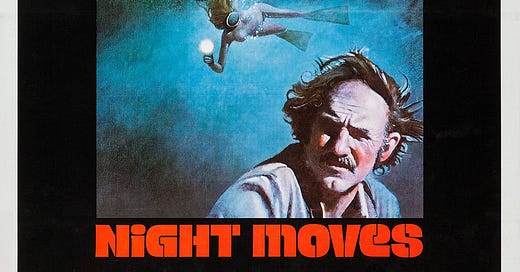



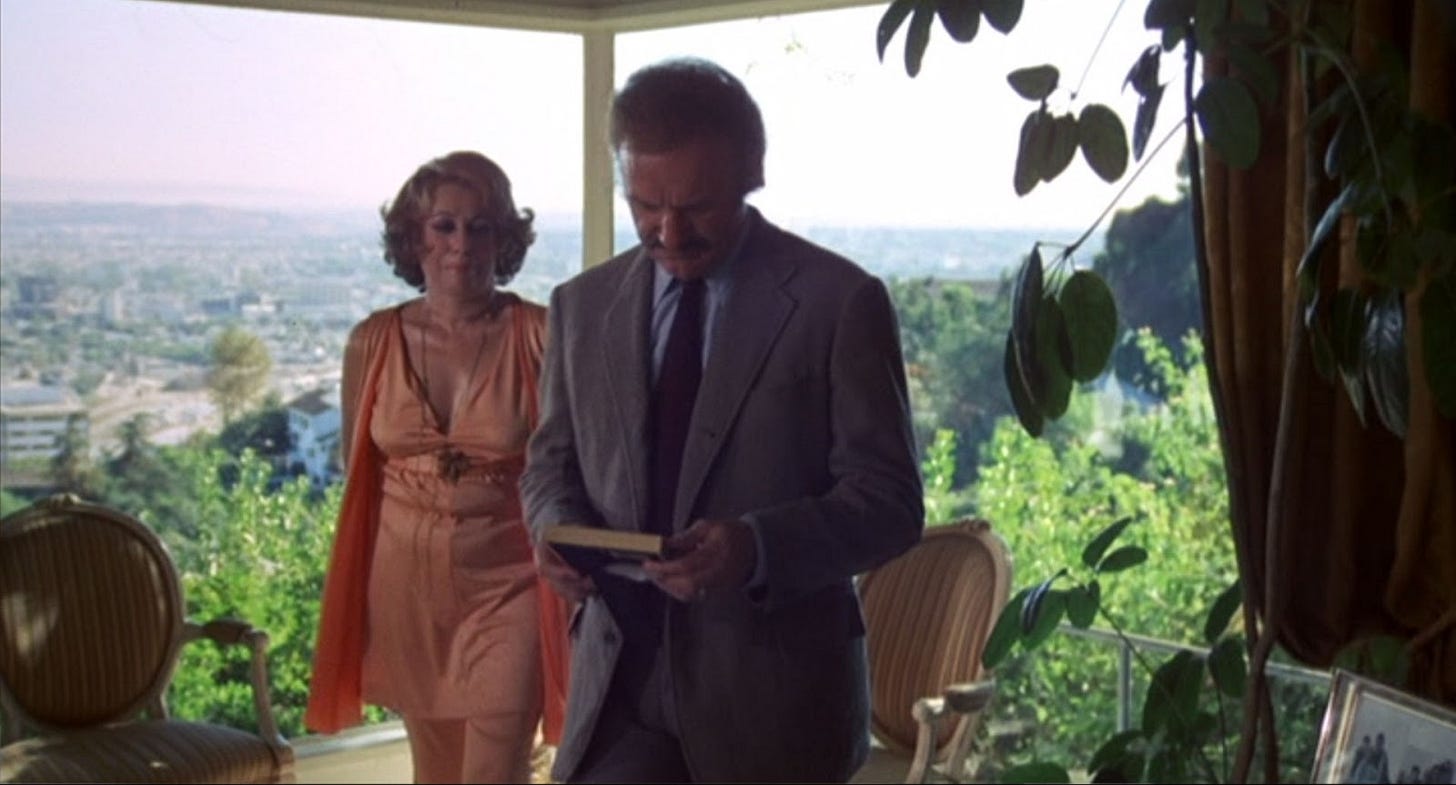
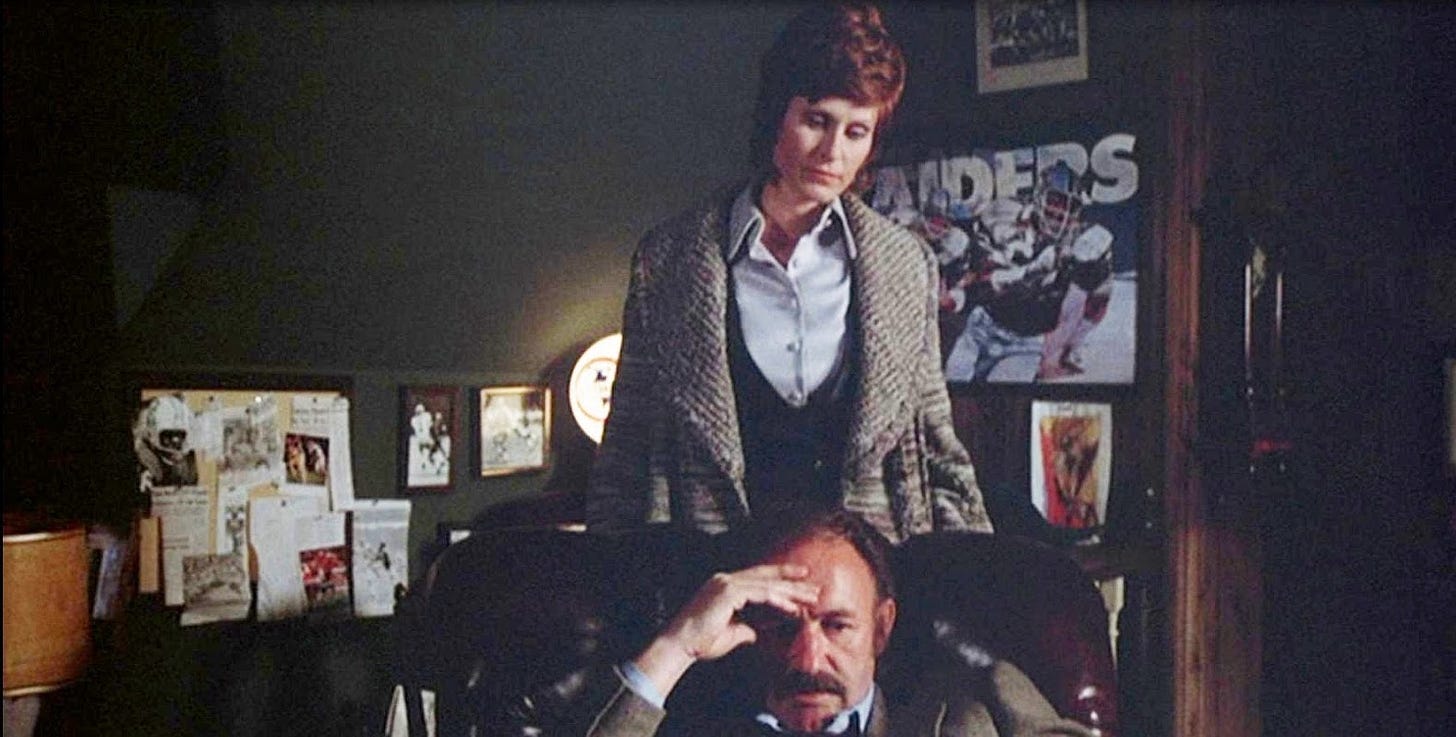
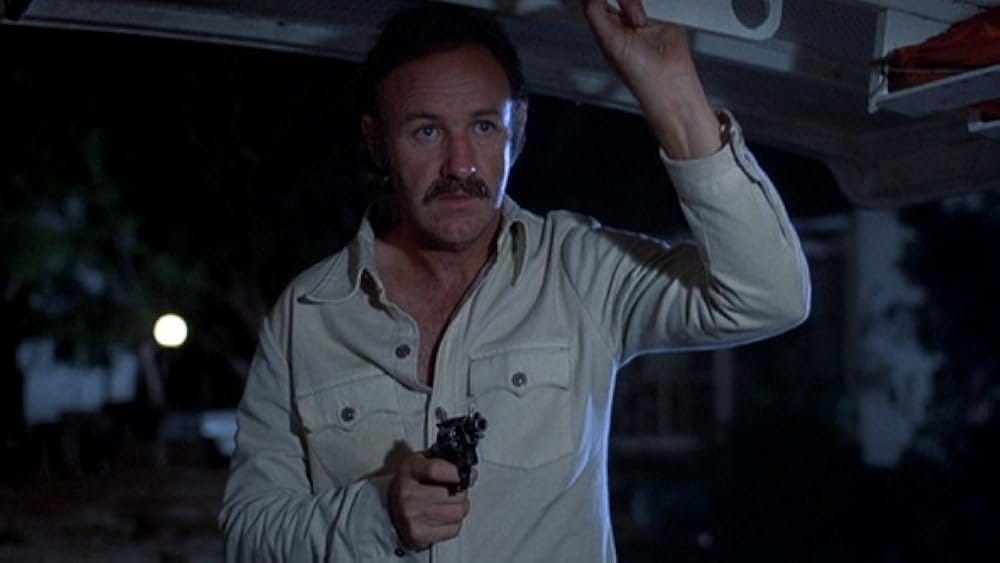

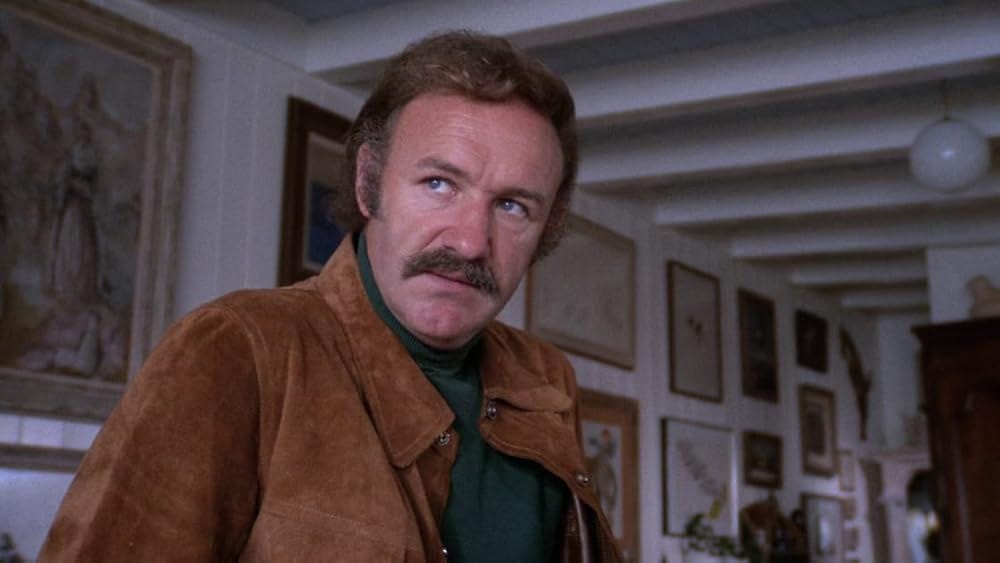
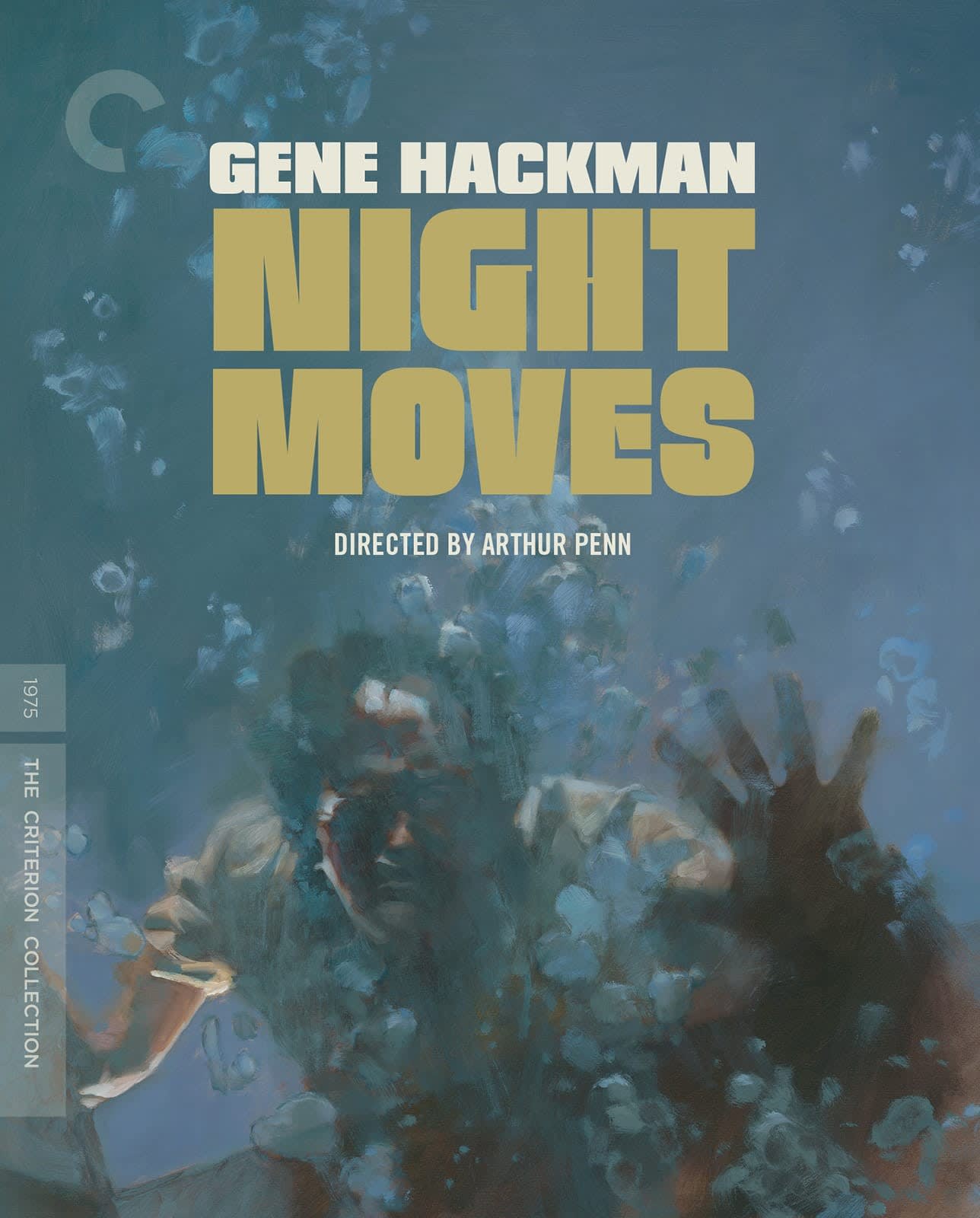
Can you provide some sort of index of previous articles so we can access them. I am interested in used blu ray noir and 50-70 films